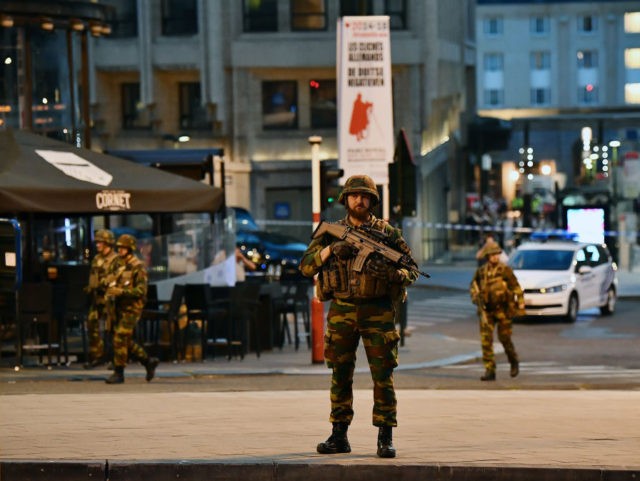EU authorities are tightening up restrictions on chemical sales in a bid to stop returning ISIS militants from blowing up Europeans with homemade explosives.
Proposed changes to 2013 restrictions on the marketing and use of explosives precursors were introduced following a European Commission review which noted bombs cooked up by Islamists had been used in the “vast majority of terrorist attacks in the EU” including Madrid in 2004, London in 2005, Paris in 2015, Brussels in 2016, and Manchester and Parsons Green in 2017.
Under the proposals, which have still to be signed off by the EU Parliament’s plenary, Brussels will place additional restrictions on the public’s ability to buy substances such as chemical fertilisers which can be used to make explosives, and require businesses to alert authorities to “suspicious transactions”.
Counter Extremism Project senior director, Hans-Jakob Schindler, said that while authorities were “never going to be able to 100 percent prevent access”, the EU’s move to increase restrictions on the sale of chemicals was “about increasing the hurdles for terrorists to get to the stuff”.
“The guys coming from Syria and Iraq very likely have built hundreds of IEDs [improvised explosive devices] in their time there, because that was one of the preferred methods used as an equalizer against the much-better-equipped Iraqi army,” Politico reported him saying.
In a statement on the development, EU Commissioner for Migration, Home Affairs and Citizenship Dimitris Avramopoulos said: “In a Europe that protects, it is indispensable to restrict criminals’ and terrorists’ access to the means they use to hurt us.
“Homemade explosives, cooked from materials bought over the counter, have been used time and time again against our citizens.
“The new EU rules against explosives precursors will ban additional chemicals, tighten rules on online sales, and further restrict access to the general public.”
Despite his regularly alluding to “a Europe that protects”, the Greek commissioner has claimed EU nations requires more than 70 million migrants from the world’s poorest regions and insists that mass migration is central to the bloc’s values.
Avramopoulos, who rejects assertions that terror attacks in Europe and open borders are linked, has previously declared that the “biggest threat” to EU nations is “the rise of populism, nationalism and xenophobia”.
A vocal proponent of authoritarian measures such as the introduction of compulsory biometric ID cards, which would allow authorities to block “terrorists and criminals” from accessing money and other services, to keep Europe safe, he admitted last year that EU citizens would likely continue to be killed in Islamist attacks “for years to come”.

COMMENTS
Please let us know if you're having issues with commenting.